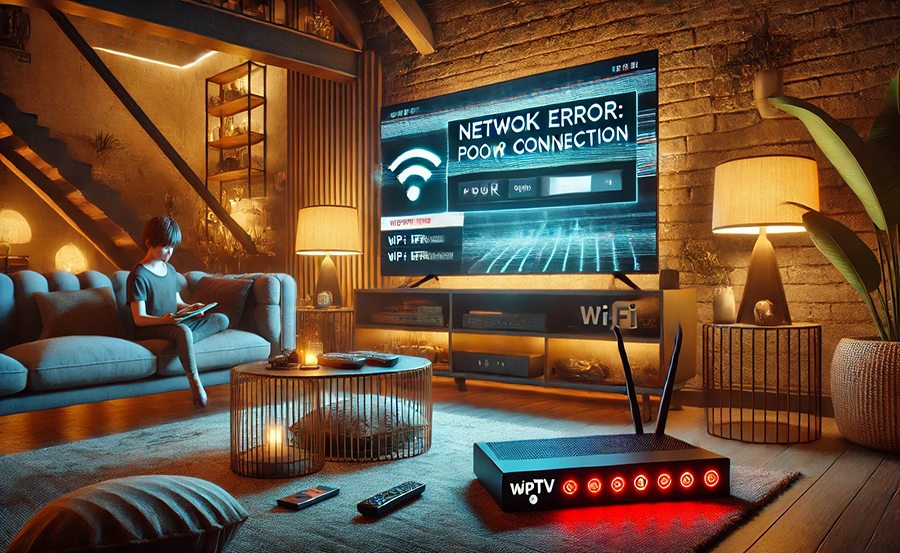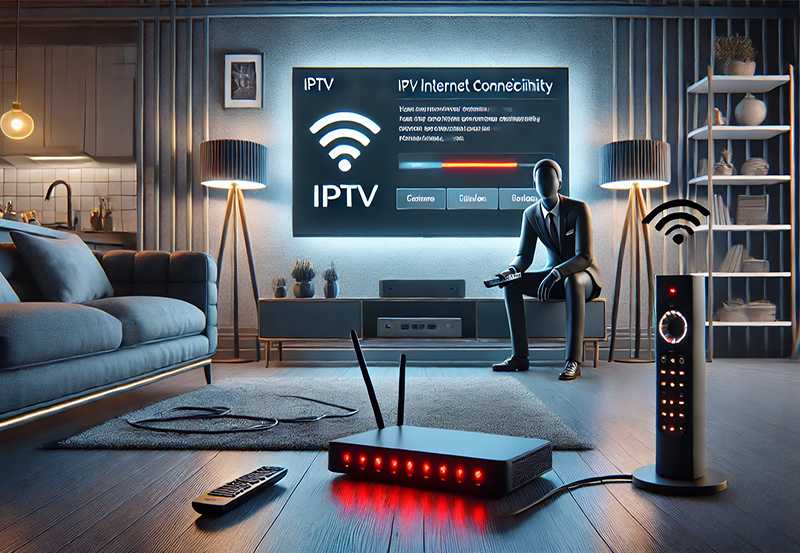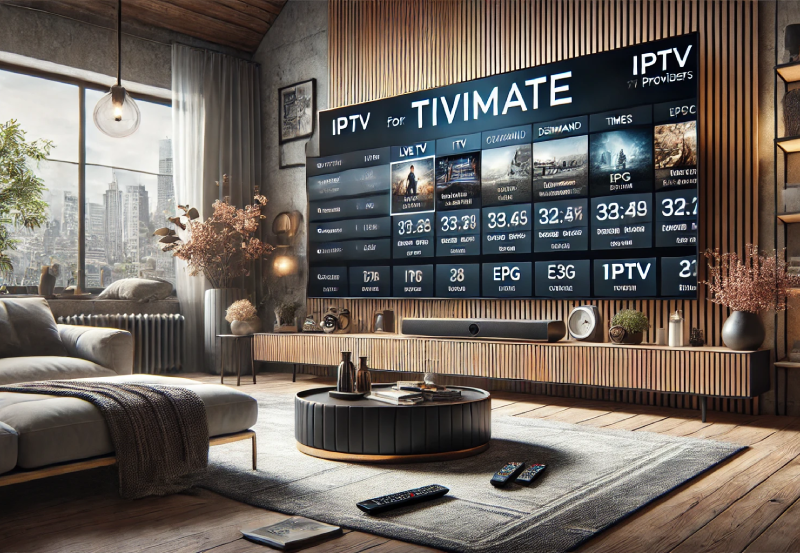Welcome to a Smoother Streaming Experience
As we dive into the digital age, television is not far behind. IPTV – that’s Internet Protocol Television – is reshaping how we consume media, offering live TV streaming like never before. Yet, for many, the joy of IPTV on Roku may be hampered by unpredictable Wi-Fi performance. If you’ve ever faced buffering issues or a less-than-crystal-clear picture, you’re not alone. This is your guide to tweaking Wi-Fi settings to elevate your IPTV enjoyment to the expert level.
Now, you might be thinking, “Tinkering with my Wi-Fi settings? Isn’t that complicated?” It might sound daunting but rest assured, it’s more straightforward than it seems. So, let’s dig in and explore practical strategies that can make a real difference.
Understanding the Basics of Live TV Streaming over Wi-Fi
What is IPTV?
IPTV is an acronym for Internet Protocol Television. Simply put, it’s a method of streaming television over the internet as opposed to traditional cable or satellite. This technology allows you to watch live TV streaming, catch up on programs, or browse a quirky video-on-demand library right from your IPTV on Roku.
Unlike traditional broadcasting, IPTV sends video content through digital signals over the internet. That means your viewing experience is directly tied to your internet connection’s quality.
Why Wi-Fi Plays a Crucial Role
Have you ever wondered why your Netflix binge works perfectly at one spot and not the other? That’s the Wi-Fi magic at play. For IPTV on Roku to work seamlessly, a solid and stable internet connection is crucial. Why? Because the signals that carry your favorite shows need a reliable passage to reach your screen without interruptions.
Simply put, Wi-Fi acts as the digital highway for these signals. Walk away from Wi-Fi’s sweet spot, and you might find yourself facing buffering icons more often than you’d like—hence the need for optimization.
Essential Wi-Fi Settings to Tweak for Improved IPTV Performance
Choose the Right Wi-Fi Channel
Think of Wi-Fi channels as lanes on a highway. The more crowded the lane, the slower you travel. Routers come with several channels, but not all are created equal. Some channels are frequently used leading to congestion. Buy 1 Year IPTV and Enjoy Unlimited Content
- Access your router settings through the admin panel.
- Identify the channels in use nearby using tools like Wi-Fi analyzers.
- Switch to a less crowded channel for reduced interference.
Sometimes, just navigating to an alternate Wi-Fi channel can do wonders in avoiding unnecessary traffic jams that slow down your live TV streaming.
Optimize Signal Strength and Coverage
Ever noticed the signal drops as you venture further from your router? That’s because all those walls and ceilings love blocking signals. Optimizing your router’s position and settings can significantly enhance your IPTV enjoyment.
- Position your router centrally and high up, away from obstructions.
- Use a Wi-Fi extender or mesh system to cover larger areas efficiently.
These simple adjustments ensure comprehensive coverage and keep those pesky dead zones at bay, ensuring a flawless viewing experience.
Advanced Techniques for Enhanced IPTV Streaming
Adjusting Bandwidth Allocation
IPTV naturally demands a substantial portion of your internet bandwidth. If multiple devices are connected intensively, your live stream could suffer. Enter Quality of Service (QoS) settings.
QoS allows prioritizing specific devices or services over others. Here’s how you can manage it:
- Log in to your router’s settings interface.
- Locate and configure the QoS settings to prioritize your IPTV device.
Not all routers support this feature, but if yours does, it’s a powerful way to ensure your streaming happens with no hiccups.
Implementing Network Security Settings
It might seem unrelated, but network security can influence your streaming quality by preventing unwanted intrusions. Securing your network means fewer devices siphoning off precious bandwidth.
- Ensure your network is secured with WPA3 encryption or WPA2 if the former isn’t available.
- Regularly update your router’s firmware to protect against vulnerabilities.
- Use complex, unique passwords to keep your network secure.
This way, you ensure that only authorized devices utilize your internet, preserving performance for your intended tasks.
Navigating Common Wi-Fi Issues Affecting IPTV on Roku
Dealing with Buffering and Lag
Few things are as frustrating as buffering during the climax of your favorite show. This nagging delay usually stems from insufficient bandwidth or Wi-Fi interference.
Besides channel adjustment and QoS settings, consider evaluating your internet plan. If you’re streaming in HD or 4K, ensure your plan supports these demanding resolutions.
Resolving Interference Issues
In a highly connected household with numerous smart gadgets, interference is almost a given. Gadgets like microwaves and Bluetooth devices can disrupt Wi-Fi signals.
- Keep your router away from competing electronics that emit radio frequency interference.
- Switch from a 2.4GHz to a 5GHz band if your router supports it, as the latter is usually less crowded.
This can significantly cut down the cross-talk between devices and pave the way for a seamless IPTV experience.
FAQs on Wi-Fi and IPTV Performance

Can a VPN Improve My IPTV Streaming?
While VPNs can sometimes bypass throttling instituted by ISPs, they may also introduce latency. It’s a balancing act – weigh the benefits and drawbacks based on your need for privacy versus speed.
How Much Bandwidth Does IPTV Typically Require?
Streaming IPTV generally requires at least 5 Mbps for regular HD streaming and up to 25 Mbps for Ultra HD (4K). Consider this when choosing an internet plan.
Are There Specific Routers Best Suited for IPTV?
Routers supporting dual-band or tri-band frequencies, beamforming technology, and advanced QoS features usually offer a better IPTV experience. Always explore your router’s specs based on these parameters.
Does My ISP Affect My Streaming Quality?
Yes, ISPs can impact streaming due to variables like throttling during peak periods. If your speed consistently falls short of your plan’s promise, consider discussing this with your provider.
Is Wired Connection Better Than Wi-Fi for IPTV?
Wired connections tend to provide more stable and consistent bandwidth, reducing the risk of Wi-Fi interference. If possible, connect your IPTV device directly to the router via Ethernet for optimal performance.
For those venturing into the world of IPTV, understanding and optimizing your Wi-Fi settings is not just beneficial – it’s essential. As the lines blur between technology and entertainment, finding that perfect balance in your setup can lead to hours of uninterrupted viewing pleasure. Take charge of your connection today, adapt your settings, and relish the seamless streaming journey ahead!
The Complete Guide to Setting Up Lazy IPTV on Your Device





